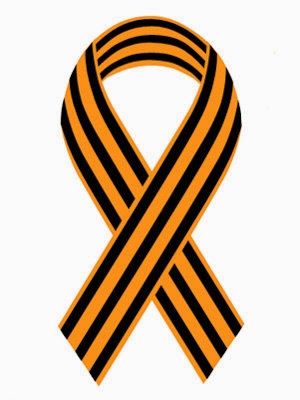Wednesday, September 19, 2007
Adm. Fallon Presses Case Against Iran
Bahrain (AP) -- The top U.S. military commander for the Middle East is pressing Arab allies to form a more united front against Iran, seen by Washington as the region's long-term threat.
At military compounds and royal reception halls across the Persian Gulf, Adm. William Fallon is delivering personal appeals to Arab leaders to counter Iran's ambitions to expand its regional influence and move ahead with its nuclear program.
Fallon has carefully avoided publicly discussing any war contingency plans or making any direct threats against Iran, which sits in his sphere of operations. As head of U.S. Central Command, he oversees forces in Central Asia, the Middle East and the Horn of Africa.
His current 10-day trip, which began Saturday in Bahrain, was more about seeking to quietly galvanize Gulf leaders while letting others sharply escalate pressure on Tehran. On Sunday, French Foreign Minister Bernard Kouchner said the world should prepare for war if Iran obtains nuclear weapons.
"We are not looking for a new NATO-type alliance against Iran," Fallon told The Associated Press after talks with Bahrain's defense minister, Sheik Khalifa bin Ahmad Al Khalifa.
But the U.S. wants that "when they (Iran) look to the Gulf, they see a group united in response to Iranian hegemonic behavior," Fallon said.
That's not such a simple task.
Many of the small Gulf nations, including Bahrain and the United Arab Emirates, have deep cultural, historical or business ties to Iran and increasingly look to Iran as a crucial source for oil and gas as their own fields begin to dwindle in coming decades. They also worry about angering local Shiite communities with affinity to Shiite heavyweight Iran.
In May, Iranian President Mahmoud Ahmadinejad was allowed by authorities in Dubai — the economic dynamo of the Emirates — to lead a rare anti-American rally a day after a visit by Vice President Dick Cheney aimed at countering Tehran's influence.
Still, strong forces pull Gulf states in Washington's direction.
The Gulf's main power, Saudi Arabia, worries about its regional rival Iran increasing its influence among Shiite Muslims, who form a majority in Iraq and have significant communities among the Sunni-dominated nations of the Gulf.
Washington also has forged close military alliances across the Gulf with about 40,000 U.S. troops on land bases — including Kuwait as a key staging ground for Iraq and an expanding presence in Bahrain as host of the U.S. 5th Fleet headquarters.
"These governments realize that they cannot make an enemy of Iran because they have to live with Iran right across the Gulf. On the other hand, they don't want to harm their ties with the United States, which has many interests in the neighborhood," said Ali al-Ahmed, director of the Institute for Gulf Affairs in Washington. "It's a very difficult spot."
Fallon carries the message that the Gulf states are an important front-line deterrent to Iran, which controls the entire northern coastline of the Gulf and could threaten critical oil tanker routes through the Strait of Hormuz.
Military officials with knowledge of Fallon's meetings also suggested that pressure from Gulf nations could dissuade Iranian naval forces from challenging U.S. and allies watching over Iraqi oil platforms and shipping lanes into Kuwait and Iraq. The officials spoke on condition of anonymity because they were not authorized to speak to the media.
They said small vessels of Iran's Revolutionary Guard — operating independently from the regular Iranian navy — have apparently been increasing patrols just inside Iran's maritime borders near Iraq's tiny Gulf coast. This is the area where 15 British soldiers and marines were seized in March and held for 13 days by Iran, which claimed the Britons strayed into its waters.
The United States and other nations, led by Britain and Australia, currently have more than two dozen ships in the Gulf region, including the aircraft carrier USS Enterprise and two amphibious ships with their strike groups.
The Enterprise arrived last month shortly after the departure of two carriers, USS John C. Stennis and USS Nimitz, which had been in the Gulf since February in a show of force against Iran.
Fallon's predecessor, retired Gen. John Abizaid, said in Washington on Monday that U.S. forces have the power to "deter Iran should it become nuclear."
"We want to send Iran a message that there are no cracks between the U.S. and its allies here," Fallon said.
His views have the ear of some of the top members of the Gulf's royal families.
In Bahrain, Fallon expressed support for a possible $300 million upgrade for the nation's F-16 fleet and met with Crown Prince Sheik Salman bin Hamad Al-Khalifa, who also serves as commander in chief of the nation's military forces.
Fallon was in the United Arab Emirates on Tuesday. Later in the day, he headed to Oman, and his tour will also take him to Qatar, Kuwait, Afghanistan and Iraq.
-------
So much for any hopes that Fallon opposes a war against Iran; looks like he jumped ship after all - VS
At military compounds and royal reception halls across the Persian Gulf, Adm. William Fallon is delivering personal appeals to Arab leaders to counter Iran's ambitions to expand its regional influence and move ahead with its nuclear program.
Fallon has carefully avoided publicly discussing any war contingency plans or making any direct threats against Iran, which sits in his sphere of operations. As head of U.S. Central Command, he oversees forces in Central Asia, the Middle East and the Horn of Africa.
His current 10-day trip, which began Saturday in Bahrain, was more about seeking to quietly galvanize Gulf leaders while letting others sharply escalate pressure on Tehran. On Sunday, French Foreign Minister Bernard Kouchner said the world should prepare for war if Iran obtains nuclear weapons.
"We are not looking for a new NATO-type alliance against Iran," Fallon told The Associated Press after talks with Bahrain's defense minister, Sheik Khalifa bin Ahmad Al Khalifa.
But the U.S. wants that "when they (Iran) look to the Gulf, they see a group united in response to Iranian hegemonic behavior," Fallon said.
That's not such a simple task.
Many of the small Gulf nations, including Bahrain and the United Arab Emirates, have deep cultural, historical or business ties to Iran and increasingly look to Iran as a crucial source for oil and gas as their own fields begin to dwindle in coming decades. They also worry about angering local Shiite communities with affinity to Shiite heavyweight Iran.
In May, Iranian President Mahmoud Ahmadinejad was allowed by authorities in Dubai — the economic dynamo of the Emirates — to lead a rare anti-American rally a day after a visit by Vice President Dick Cheney aimed at countering Tehran's influence.
Still, strong forces pull Gulf states in Washington's direction.
The Gulf's main power, Saudi Arabia, worries about its regional rival Iran increasing its influence among Shiite Muslims, who form a majority in Iraq and have significant communities among the Sunni-dominated nations of the Gulf.
Washington also has forged close military alliances across the Gulf with about 40,000 U.S. troops on land bases — including Kuwait as a key staging ground for Iraq and an expanding presence in Bahrain as host of the U.S. 5th Fleet headquarters.
"These governments realize that they cannot make an enemy of Iran because they have to live with Iran right across the Gulf. On the other hand, they don't want to harm their ties with the United States, which has many interests in the neighborhood," said Ali al-Ahmed, director of the Institute for Gulf Affairs in Washington. "It's a very difficult spot."
Fallon carries the message that the Gulf states are an important front-line deterrent to Iran, which controls the entire northern coastline of the Gulf and could threaten critical oil tanker routes through the Strait of Hormuz.
Military officials with knowledge of Fallon's meetings also suggested that pressure from Gulf nations could dissuade Iranian naval forces from challenging U.S. and allies watching over Iraqi oil platforms and shipping lanes into Kuwait and Iraq. The officials spoke on condition of anonymity because they were not authorized to speak to the media.
They said small vessels of Iran's Revolutionary Guard — operating independently from the regular Iranian navy — have apparently been increasing patrols just inside Iran's maritime borders near Iraq's tiny Gulf coast. This is the area where 15 British soldiers and marines were seized in March and held for 13 days by Iran, which claimed the Britons strayed into its waters.
The United States and other nations, led by Britain and Australia, currently have more than two dozen ships in the Gulf region, including the aircraft carrier USS Enterprise and two amphibious ships with their strike groups.
The Enterprise arrived last month shortly after the departure of two carriers, USS John C. Stennis and USS Nimitz, which had been in the Gulf since February in a show of force against Iran.
Fallon's predecessor, retired Gen. John Abizaid, said in Washington on Monday that U.S. forces have the power to "deter Iran should it become nuclear."
"We want to send Iran a message that there are no cracks between the U.S. and its allies here," Fallon said.
His views have the ear of some of the top members of the Gulf's royal families.
In Bahrain, Fallon expressed support for a possible $300 million upgrade for the nation's F-16 fleet and met with Crown Prince Sheik Salman bin Hamad Al-Khalifa, who also serves as commander in chief of the nation's military forces.
Fallon was in the United Arab Emirates on Tuesday. Later in the day, he headed to Oman, and his tour will also take him to Qatar, Kuwait, Afghanistan and Iraq.
-------
So much for any hopes that Fallon opposes a war against Iran; looks like he jumped ship after all - VS





